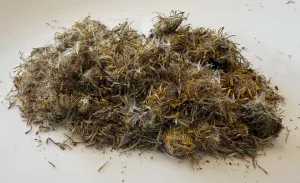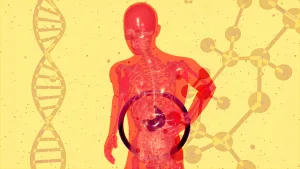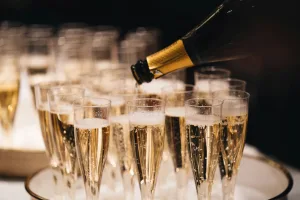Traditional Chinese Medicine
Herbal Profile: Chi Xiao Dou (Adzuki Beans)!
 In Mexico black or refried beans are most popular. Caribbeans eat black peas, Indians more lentils, and of course Americans prefer the sweetest of all, baked beans. In China though, adzuki beans are more than just a delicacy—they are an important ingredient in our classical pharmacopeia, often used to treat conditions of the intestines or skin, the latter frequently manifesting pathologies of the former, thereby informing us of the underlying pattern.
In Mexico black or refried beans are most popular. Caribbeans eat black peas, Indians more lentils, and of course Americans prefer the sweetest of all, baked beans. In China though, adzuki beans are more than just a delicacy—they are an important ingredient in our classical pharmacopeia, often used to treat conditions of the intestines or skin, the latter frequently manifesting pathologies of the former, thereby informing us of the underlying pattern.
For example, while redness around the forehead points to suspected biofilms of the intestines, acne that falls more around the jawline, chest, or upper back suggests biofilms of the stomach. Chi Xiao Dou, or Adzuki Bean, can be used to treat either, provided it is appropriately dosed within the context of an accurate holistic formula. It is also useful for eliminating or minimizing liver spots, pus accumulation around the eyes, and other random skin discolorations.
Listed in our texts as sweet, sour, and neutral in properties, its neutrality allows it to diffuse dampness in the body that is either cold/inhibitory or hot/excitatory in nature. Its sweetness encourages the body to generate a healthy amount of fluids, and its astringency obviously helps our body to hold that which is leaking, or sinking. It is said to gently promote blood circulation between the bowels and the skin layer.
This might explain why it comprises half of the formula, Dang Gui Chi Xiao Dou Tang, most commonly prescribed to treat certain types of hemorrhoids and skin issues around the buttocks.
If the shoe doesn’t fit—that is if this formula does not fit your pattern, but you still suffer with chronic hemorrhoids, it is advisable to regularly consume adzuki beans with your meals to take advantage of its biofilm dissolving properties. By relieving intestinal vessels of inflammation this should take pressure off of the rectum.
Adzuki beans go well with rice and/or Latin or Asian dishes, also within rice congees plus a boiled egg, providing additional protein to an otherwise dish of just white rice. If you don’t love the taste as much you can also do what I do for my daughter, which is mix the adzuki beans with baked beans as a side dish on hamburger and hotdog nights.
To treat skin conditions Chi Xiao Dou is generally paired one way or the other:
- With the aforementioned, Dang Gui to not only help to generate red and white blood cells, but also to courier them to the surface to nourish and lubricate the skin.
- With more bitter, inhibitory, heat clearing medicinals, such as rehmannia root to mitigate the body’s inflammatory response, known to flare upwards in the form of jawline or upper back acne (“Backnee”).
If you think adzuki beans might help you or a loved one reach out—or just go to the store, purchase, and cook them up! Preferably organic, as inorganic legumes can be particularly vulnerable to chemicals and pesticides. Any recipe or preparation questions, let me know!
Alternative Acne Treatments
 Acne has many faces. Why does it land on us? Our faces and backs, upper or lower back? Why for some of us is it itchy, while not for others? For some it is painful. Some women get flares on their cycle, or just after. Why?
Acne has many faces. Why does it land on us? Our faces and backs, upper or lower back? Why for some of us is it itchy, while not for others? For some it is painful. Some women get flares on their cycle, or just after. Why?
The Jue Yin-Yang Ming mechanism is one of the most important connections in Chinese medicine. It dictates that our body must have enough healthy fluids and inhibitory substances in reserve, such as estrogen, dopamine, etc., to mitigate inflammatory heat from flaring upward in the body, whether vertically up (to the face and head) or simply upwards from the “organ layer” to the skin.
For those not prone to “heat pathologies” (approximately half the population) this “flare” will likely manifest in different ways—if it does so dermatologically the skin is less likely to be red and/or angry.
If you’re like myself the skin is likely to turn red. If there is itchiness it indicates damp fluid retention (often sebum oil) trapped on the surface—the itching being its attempt to vent (follicular hyper-keratinization)—and/or some central nervous system dysregulation, i.e. a potential stress component. The reason scratching ultimately makes things worse is because the manual aggression ends up pushing the fluid retention a tad bit deeper beneath the surface, no doubt to resurface soon thereafter. Although scratching to bleed is not advisable, it does generally provide longer-lasting relief via its ability to vent some of the pathogenic fluids within the blood. If there is pain at the site, there is probably some degree of local blood stagnation. This often coincides with the week leading up to one’s menses, whereas symptom flares on the heels of one’s menses points more to “Jue Yin” fluid and/or blood deficiency.
Dermatologists often recommend Spirinolactone, which works by stopping aldosterone from signaling the kidneys to reabsorb sodium. This might be a wonderful Band-Aid for some, but unfortunately over time can cause issues as sodium is an essential mineral for transporting nutrients across cell membranes, also for regulating blood pressure. This might explain why two of its most common side effects are dizziness and gastrointestinal issues.
In the treatment of acne it is first important to rule out itching—whether there are oily pathogens beneath the surface and/or an emotional component, that needs our attention. Most important is the Jue Yin-Yang Ming axis. How much heat must our acupuncture and herbal medicines stop from flaring to the person’s skin and how much blood and/or inhibitory substances must we generate to prevent further flares? Dosages or points might be modified on a weekly basis. Striking this prescriptive balance is the key to optimize clinical outcome.
As for self-care, it is advisable in almost all skin conditions to go off dairy for the lifecycle of a red blood cell, or 120 days. Dairy contains the hormone, IGF-1, which increases sebum production. Many people can resume in moderation afterwards. Red meat can go either way as it helps to generate blood and fluids, but can also generate bodily heat. Where one falls along the Jue Yin-Yang Ming imbalance will decide how much steak is advisable. As far as protein goes eggs, fish, and tofu are ideal, as they don’t generate as much heat in the body.
Herbal Profile: British Yellowhead
 Meet “Xuan Fu Hua,” or the British Yellowhead flower, an herb commonly used to treat acid reflux, cough, or allergies, outlined in the Divine Farmer’s Materia Medica as “salty, warm, and slightly toxic,” originally indicated for fullness below the rib sides and fright palpitations.
Meet “Xuan Fu Hua,” or the British Yellowhead flower, an herb commonly used to treat acid reflux, cough, or allergies, outlined in the Divine Farmer’s Materia Medica as “salty, warm, and slightly toxic,” originally indicated for fullness below the rib sides and fright palpitations.
Why? How does the Yellowhead flower achieve this?
Salty flavors and their chemistry have a descending action in the body—one that revolves around the manipulation and distribution of fluids—that is so pathogenic fluids can be purged, allowing for healthy fluids to be re-directed, steamed upwards where they belong.
When the heart lacks blood it is more susceptible to fright and palpitations (it isn’t only your anxiety). When the neuromuscular vessels that traverse the ribs lack fluids, we feel pain or tightness. And in many cases of acid reflux the root of the problem is not an abundance of acid, but a lack of fluids and/or electrolytes around our metabolic organs.
Yellowhead flower is not always the magic bullet for all these conditions; but when their root cause is one of gases and fluids in the body failing to descend, perpetuating a vicious cycle that is due to a void of fluids below in the first place, its formulas are a primary route we’ll hope and suspect to be effective. The opposite physiological patterns of GERD will instead be aggravated, because holistic medicine.
The chemical composition of Yellowhead flower includes quercetin, which comes from the white part of grapefruits and oranges and is often sold as a supplement to treat seasonal allergies; caffeic acid, a polyphenol found in coffee beans; and chlorogenic acid, an antioxidant that is also found in coffee beans. This makes sense as the diuretic effect of coffee is obviously a downward one in the body that subsequently lifts functional chemicals upward in turn.
Acid Reflux

There is a concept in Chinese medicine called “Counterflow qi,” which is in reference to when bodily gases or fluids move in the opposite direction from how they are intended. In the digestive process everything is supposed to move down. Don’t get me wrong—not too quickly—but down nonetheless. Any symptom of movement to the contrary is evidence of metabolic dysfunction.
Belching and burping are generally not perturbing to most of their sufferers, possibly apart from the occasional social embarrassment for loved ones. Nevertheless, they are indicative of some degree of weakness and/or inadequacy of vital substances failing to fully process something in the gut.
Vomiting is the extreme version of this, but the principle is the same. Somewhere in between is acid reflux, or “GERD” (gastro-espophageal reflux disease), which usually manifests as symptoms ranging from a burning sensation in the gut, chest, or throat, to a trapped feeling “below the heart,” as Classical Chinese texts would say. Patients experience this anywhere from once or a few times a week if they “eat something wrong,” to incessantly in every waking moment, understandably prompting them to somehow medicate, one way or another.
What causes this? Frankly, metabolic weakness and/or a lack of functional organ fluids, both of which can be caused by all the usual suspects: poor diet, stress, genetic predispositions, and long-term use of pharmaceutical medications.
Ironically, the drugs most commonly prescribed by conventional medicine for GERD, proton pump inhibitors, work by blocking stomach acid, thereby causing more physiological dryness, aggravating the root cause of the condition while muting its branch. This might be okay for a little while for those suffering from “excess patterns,” where the GERD truly is caused by excessive acid—but for those whose symptoms are due more to weakness, such medications will most likely yield a short leash.
Chinese medicine first attempts to distinguish the pattern—which kind of reflux are you? Then we treat accordingly, using acupuncture points and herbal formulas to calm the metabolic organs by imbuing them with more strength, mucosal fluids, and blood, and over time proper directionality of gases and fluids should follow suit.
In the meantime, it is advisable to eat foods that are easy to digest, such as sweet potatoes, steamed vegetables, eggs, fish, tofu, white rice, and/or pasta. Obviously, avoid as much as possible spicy foods and alcohol, refined sugar, dairy, and raw, uncooked foods. (Deep) breathing can be helpful for its inherent function to descend, as can massaging the stomach with both palms of your hands in 36 clockwise circles around the belly button. Empirical symptom management en route to unearthing the root cause of your unique pattern include DGL licorice pills if your pattern is one of weakness, or mint tea if you produce too much acid.
Happy New Year, from DFA!
 A quick re-cap on the year 2025 in the rearview, the “year-view,” if you will, otherwise “year in review” (clearly being a dad is impacting my jokes)!
A quick re-cap on the year 2025 in the rearview, the “year-view,” if you will, otherwise “year in review” (clearly being a dad is impacting my jokes)!
A lot of business as usual in the way of business—my same schedule of 3 days a week in the office, plus one supervising in the school clinic at Pacific College, partially highlighted by our appearance on Ben Aaron’s PIX-11 News segment.
I also gladly welcomed my first ever part-time assistant, Kira Schneider, a great acupuncturist in her own right, with a private practice in Princeton, New Jersey.
This year’s continuing education was also more of the same, as Chinese medicine’s foundational text, the Shang Han Za Bing Lun, takes a lifetime to study and master. In addition to reading my nightly passages, I credit Genevieve Le Goff of California, with most of the knowledge I gained last year.
In the first week of this new year I’ve added to my repertoire, virtually lecturing 2 courses per week on Classical Chinese herbal medicine with the Virginia University of Integrative Medicine, which happens to have a New Jersey campus located just a few miles from my mom.
Speaking of which, Mom’s hangin’ in there, my wife, Dr. Jillian Cohen, just got the first ever fellowship at Hackensack Meridian Health’s Integrative Medicine department approved, and daughter Peyton has since turned 4 and 4 1/4, rapidly approaching 4 1/2, and has not been made aware that she’s about to have her second trip to Disney in two years (hopefully this time sans coronavirus). She remains infatuated with everything princesses and drawing (including occasional household furniture vandalism), and her bilingual Spanish abilities are improving, inevitably to surpass my own.
Curious to hear if anyone has any exciting news from last year and/or regarding the year to come—especially if it’s something I should be sharing on my newsletter to benefit fellow clients and friends.

